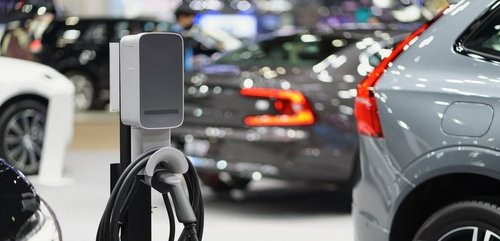Belgium, (Brussels Morning Newspaper) Over the past year Europe has experienced some of the largest threats to its climate goals, from Russia’s invasion of Ukraine to major natural disasters becoming more frequent on the continent. Now, more than ever, we need to drastically increase our support for ramping up renewable-powered electrification combined with zero-emission technologies. In the transport sector, one of the largest emitters of greenhouse gas emissions, EV charging is the key to supporting the uptake of zero-emission vehicles and contributing to climate goals.
The Alternative Fuels Infrastructure Regulation (AFIR) proposed as part of the Green Deal in July 2021, aims primarily at bolstering the quality and quantity of the zero-emission infrastructure needed to support the uptake of electric vehicles. This regulation is critical to addressing the mismatch of national legislation across Europe, which has hampered the deployment of EV charging infrastructure to date and negatively impacted the experience of citizens movement across the block.
Today, we now have a mandate at EU level for the de facto phase out of internal combustion engine passenger cars (ICE) in a little over ten years combined with impending legalisation that may create an end date for polluting trucks; two factors which are putting pressure on the industry to roll out charging infrastructure faster than ever before.
In this context, the Commission, Parliament, and Council will be convening their third trialogue on the 7th of February, to hammer out the level of ambition on infrastructure targets and means of payment for charging.
The way consumers pay for charging EVs is an important element in their charging experience. However, one of the current provisions proposed by the European Parliament, a mandate that all charging stations are retrofitted with a payment card reader, may well reduce access to charging. This obligation would completely distort the charging infrastructure ecosystem, by forcing the use of a technology that is not integrated with the vast majority of existing stations, which already have a wide range of payment means that work well for EV drivers.
This will also negatively affect the investment in infrastructure and increase the charging cost for drivers, as the increased hardware and operating cost risk being transferred to the consumer. For uses case such as municipal AC stations, this could severely undermine the public AC market case altogether – due to increased costs. In rural areas or underprivileged communities, these stations will most likely have to be removed entirely rather than upgraded due to costly refurbishment. This impacts the overall objective of making EV driving more accessible, affordable, and convenient.
Furthermore, the economical constraints to retrofit AC stations are substantial and the mandate would drastically impact the business case to build out these charging stations. For instance, retrofitting existing stations – which de facto means replacing the station itself – could lead to costs of EUR 1000 per basic card payment terminal, EUR 70 per year for hardware maintenance, as well as wage costs of EUR 850 per station. Additional costs also concern software maintenance and fee structures for licensing, as well as transaction fees. Practically speaking, this is almost equal to installing an entirely new station. At a European level the existing 430.000 public charging stations (AC & DC), would also have to be refurbished, drastically delaying the rollout of new charging points needed to meet the revised targets.
As a result, this could lead to the decommissioning of existing stations becoming a more viable option instead of retrofitting which would impact the ability to reach the relevant infrastructure targets and reduce overall availability and accessibility for EV drivers.
In other markets, such as Germany, the retrofit obligation would be associated with additional problems. Since 1 April 2019, calibration law is a particularly relevant topic for electric mobility in Germany. Every electric car driver must be able to transparently verify how much electricity they have drawn from a charging station and be able to trust that this value was measured correctly. Since this date, charging stations must invoice in accordance with the strict requirements of the calibration law. The retrofit obligation would lead to a significantly longer and more cost-intensive calibration certification process.
At this point it is very likely that the AFIR will come into force in the 2nd half of 2023. This will mean that all new chargers will need to accept card payments (either through a card reader or via contactless functionality). Consumer trends and experiences as well as means of payment will only continue to evolve well ahead of the retrofit deadline of 2027. In line with the ambition of the overarching Green Deal, the upcoming bans of polluting passenger cars, and the ambitious targets in the AFIR we must dedicate all resources to the acceleration of the roll-out of EV infrastructure rather than retrofitting well-functioning hardware. Otherwise we risk standing in the way of our Net Zero ambitions, rather than being part of the solution.




